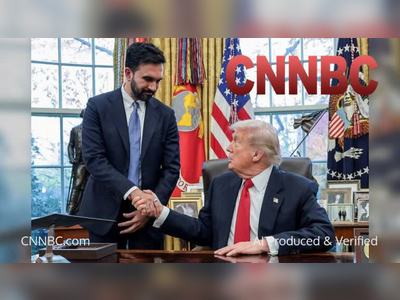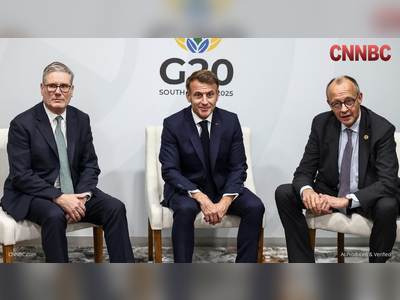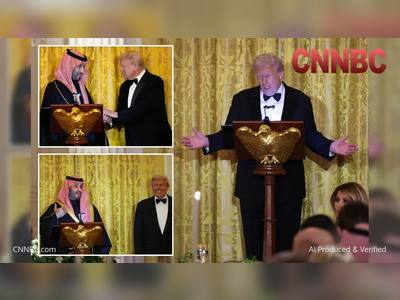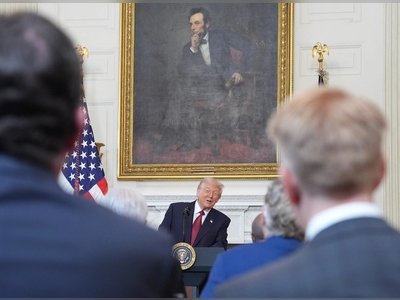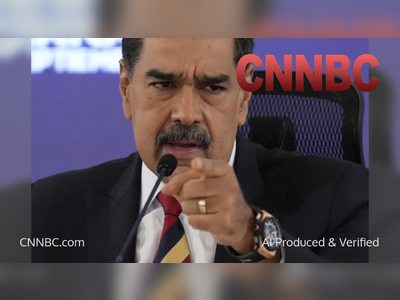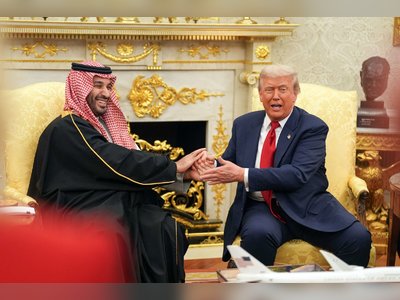U.S. Peace Plan for Ukraine Faces Pushback from European Allies
While President Trump says the proposal is not final, Kyiv’s allies insist on broader consultation before accepting the deal
A U.S.–drafted peace plan to end the war in Ukraine is meeting sharp resistance from Kyiv’s European partners as talks ahead of the Geneva talks and the G20 summit intensify.
President Donald Trump told reporters outside the White House that the proposal is not his “final offer,” adding that the Ukraine conflict “should have been ended a long time ago.”
The thirty-point blueprint, leaked to the media, stipulates that Ukraine relinquish control over parts of Donetsk, Luhansk and Crimea, trim its military forces, and forgo future membership in the North Atlantic Treaty Organization (NATO).
Kyiv, which has repeatedly ruled out these terms, said the proposal presents a stark choice: compromise national dignity or risk losing the crucial support of the United States.
European Union, Canadian and Japanese leaders issued a joint statement welcoming U.S. mediation efforts but warning that any settlement must ensure that borders are not re-written by force and that Ukraine retains a meaningful role in negotiations.
German Chancellor Friedrich Merz and French President Emmanuel Macron emphasised that no deal with Moscow should be imposed from the outside and that European voices must be central to the process.
Britain’s Prime Minister Keir Starmer affirmed that Ukraine’s “friends and partners” will work to strengthen the U.S. framework to achieve a “lasting peace once and for all.” He insisted that Kyiv must remain at the heart of any negotiation and that NATO and European Union involvement is essential.
Elections in New York and shifting U.S. domestic politics add further weight to the U.S. role.
Ukraine is scheduled to meet U.S. and European envoys in Geneva on Sunday.
President Volodymyr Zelenskyy described the moment as among the most difficult in his country’s history and reiterated that any deal must be grounded in security and justice.
Moscow has said it is willing to treat the U.S. proposal as a foundation for settlement but stressed it retains the option to continue military operations.
Beyond the specific terms, the emerging standoff reflects a broader strategic realignment: Washington is leading the diplomacy, but European capitals are pushing back to safeguard both Ukraine’s voice and their broader security interests.
The outcome of these negotiations will shape not only the fate of Ukraine but the structure of post-war European security architecture.
With the clock ticking and a deadline set by the U.S. president, the coming days could determine whether the diplomacy yields a framework accepted by all parties—or fractures into parallel tracks deepening the war’s geopolitical ripple effects.
President Donald Trump told reporters outside the White House that the proposal is not his “final offer,” adding that the Ukraine conflict “should have been ended a long time ago.”
The thirty-point blueprint, leaked to the media, stipulates that Ukraine relinquish control over parts of Donetsk, Luhansk and Crimea, trim its military forces, and forgo future membership in the North Atlantic Treaty Organization (NATO).
Kyiv, which has repeatedly ruled out these terms, said the proposal presents a stark choice: compromise national dignity or risk losing the crucial support of the United States.
European Union, Canadian and Japanese leaders issued a joint statement welcoming U.S. mediation efforts but warning that any settlement must ensure that borders are not re-written by force and that Ukraine retains a meaningful role in negotiations.
German Chancellor Friedrich Merz and French President Emmanuel Macron emphasised that no deal with Moscow should be imposed from the outside and that European voices must be central to the process.
Britain’s Prime Minister Keir Starmer affirmed that Ukraine’s “friends and partners” will work to strengthen the U.S. framework to achieve a “lasting peace once and for all.” He insisted that Kyiv must remain at the heart of any negotiation and that NATO and European Union involvement is essential.
Elections in New York and shifting U.S. domestic politics add further weight to the U.S. role.
Ukraine is scheduled to meet U.S. and European envoys in Geneva on Sunday.
President Volodymyr Zelenskyy described the moment as among the most difficult in his country’s history and reiterated that any deal must be grounded in security and justice.
Moscow has said it is willing to treat the U.S. proposal as a foundation for settlement but stressed it retains the option to continue military operations.
Beyond the specific terms, the emerging standoff reflects a broader strategic realignment: Washington is leading the diplomacy, but European capitals are pushing back to safeguard both Ukraine’s voice and their broader security interests.
The outcome of these negotiations will shape not only the fate of Ukraine but the structure of post-war European security architecture.
With the clock ticking and a deadline set by the U.S. president, the coming days could determine whether the diplomacy yields a framework accepted by all parties—or fractures into parallel tracks deepening the war’s geopolitical ripple effects.

